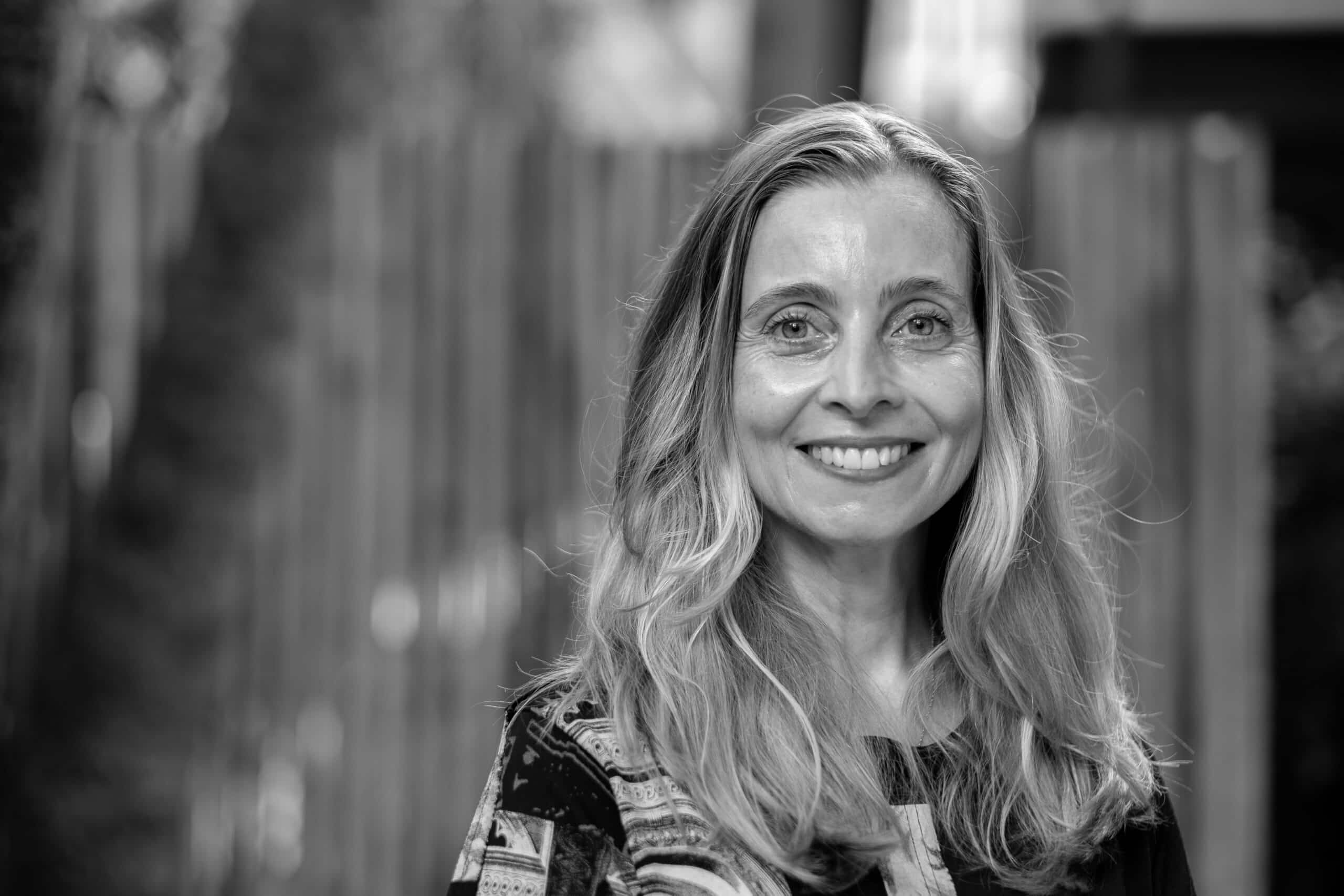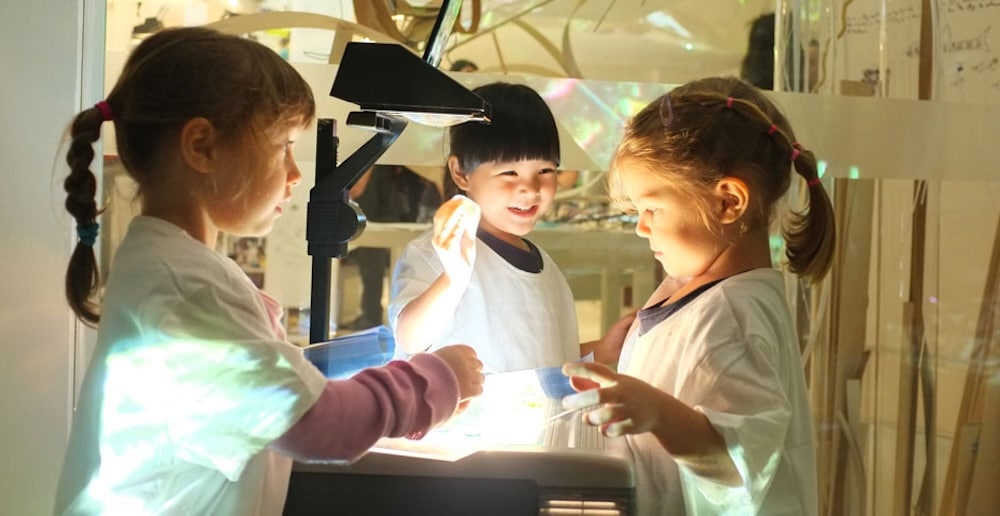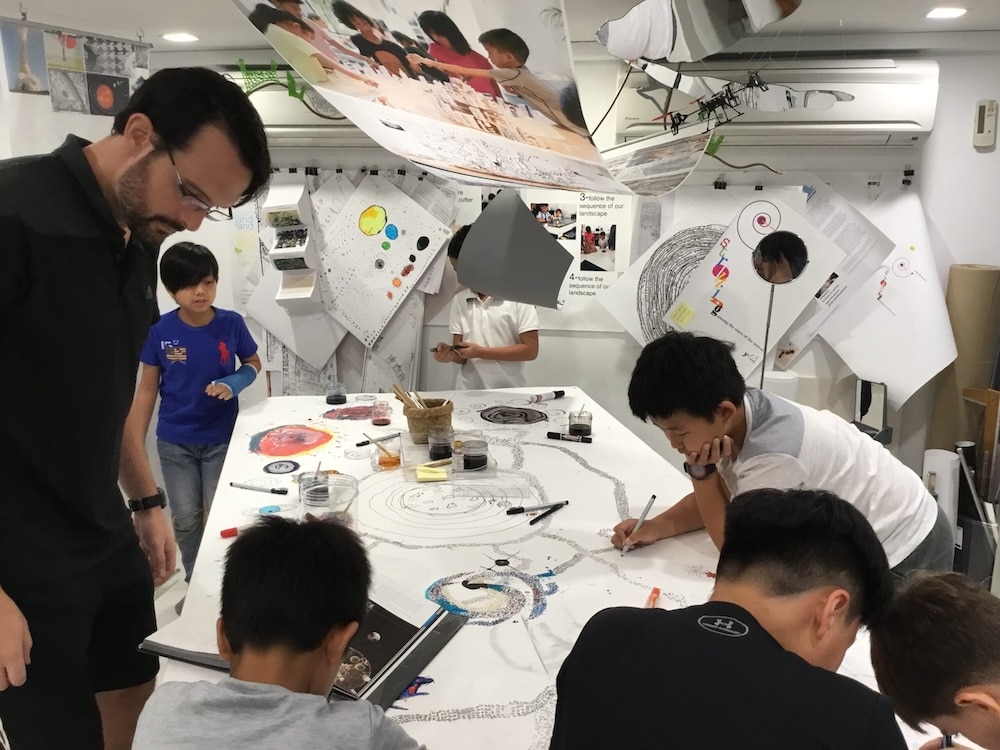How did you arrive in the field of primary education?
Observing my son when he was six years old was a powerful experience that ultimately inspired my doctoral research in education. Along the way, I received my Graduate Diploma in Teaching and Learning. The joy a school community brings closed the deal.
Stepping into the role as Head of Schools after a legacy of 38 years, what is your own vision for ELC, to ensure it continues to be a world-class bespoke learning experience for children?
ELC Forever is our biggest priority. Our founders created something special from both an educational and a social-emotional point of view. Our duty now is to honor and grow that legacy so that ELC will be forever. We understand the importance of continuing the work that serves our children and provides an education worthy of them. An academically strong education; based on understanding each child as a learner and providing the socio-emotional environment where they can grow confidently and reach their full potential.
I joined The City School in 2018 as a Year 3 teacher and entered a community of exceptional educators. With a ratio of one educator to every four children, we can provide the individualized attention children deserve. These are the foundational years of learning that will carry with them their whole lives; our children deserve that bespoke attention that small class sizes and highly qualified teachers offer.
In 2019 I became Head of Teaching and Learning just ahead of Covid. The pandemic crystallized and cemented my commitment to our personalized approach – this is what is best for each child and what we will continue to do. We will continue holding ourselves to high standards to provide the best of early years and primary education.
What are the most important qualities as Head of School at ELC?
It is important to apply to myself those same high expectations we have of the children. Our image of the child as being powerful, capable, and full of potential is a high expectation indeed, and we see the children rise to it and thrive in this environment. I want to hold myself and our educators to that same high standard. The City School Scholar concept we have developed encapsulates the qualities we nurture in children as learners and the qualities we should strive for in ourselves as educators: what are our discipline-based competencies, how do we engage in critical thinking, creativity, collaboration, communication, and compassion? The OECD, UNESCO, Harvard Graduate School of Education, and the Ontario Curriculum, among others, tell us that these are the skills the world expects now. If we meet those goals for the children and ourselves, we are in a good place. So I want to be a leader who unites us to achieve these expectations.
How do you define high-quality teaching and learning?
Our community promises are: academic strength, socio-emotional well-being, and personalized learning with skilled teachers, which are the foundations of a high-quality education.
We want to know and understand every child and how they learn – their experiences, emotions, thoughts, theories, academic progress, friendships, and home environment – this all informs who they are when they enter the classroom. From there, we create lessons that really engage our children. We follow Canada’s Ontario curriculum and a Reggio Emilia approach, which we know ensures high academic standards and expectations. Still, we also know that it is our job to apply our programs in a tailored way that each child can reach their full potential.
I believe that you really cannot get to know your children well enough as a teacher because that informs everything you do. Our priority on personalized learning is why we have small class sizes. With about 12 children in a class, we can give children the attention they deserve.
High-quality teaching and learning also depend on a socio-emotional environment where children feel safe, seen, heard, and valued. When we can create that space for them, they can really reach their best selves as learners and global citizens.
Another part of high-quality teaching and learning is academic strength. We know that numeracy and literacy are the silver bullets that empower children to engage in society in productive ways. Still, we must also deliver all the other outcomes of the Ontario curriculum; as society becomes more global and issues more complex, we are preparing our children for whatever future work and communities they may join.
At primary educator level, how do you equip children with the skills in such an unknown future, especially with the advent of AI and changing landscape of education?
One book I recommend is David Perkins’ Futurewise: Educating our Children for a Changing World. Perkins comes from the Harvard Graduate School of Education, and in fact, Harvard has collaborated with and endorsed Reggio Emilia as a high-quality approach to educating children with lasting skills. Perkins talks about a lifeworthy education for children that enables them to create big understandings. Big in insight, action, ethics, and opportunity so that they can transfer these skills into diverse high school; university, community, and work contexts.
This very much coalesces with those 21st-century skills we nurture through Project each year: collaboration and communication, critical thinking, creativity, and compassion. Wherever you might be, whatever the future might look like, you will need these skills in your toolkit; we have an ethical responsibility to grow those in every child.
What does ELC offer for children that prepares them for high schools and beyond?
The image of the child as competent, capable, and full of potential, and the voice, choice and respect that comes with that inform our daily interactions with the children. In this way, we grow confidence inside them, ensuring they have a ‘seat at the table.’ Whether it is the first day of high school, the first day of university, the first day of work, or even moving to a new country, our children have the confidence to be seen, heard, and valued and to expect that from others.
Every year ELC children go to top high schools in Bangkok like NIST, Patana, ISB, and others (as well as internationally), and the feedback we get from these schools is telling; they report that ELC children transition very well because they know themselves and know how to think, contribute, and collaborate. That lifeworthy engagement nurtured at The City School is something that serves our children very well into high school when they are required to be independent learners.
Within the landscape of International Schools in Bangkok, what differentiates ELC?
At all our ELC schools, we have the most authentic version of inquiry-based learning that I have seen. We treat children as researchers because we know that research skills are critical for the future. With the advent of AI and technology developing apace, knowledge equity is accessible to everyone, but being a critical thinker and researcher are the key differentiators. This is what makes us high-quality, authentic, and accredited in our approach. And also what allows us to place children at the top international schools in Bangkok and overseas in schools such as Institut Le Rosey in Switzerland.
Who or what inspires you?
My anchor is the children. Again, that is what differentiates all the educators at ELC International Schools. We put the child at the heart of everything we do. And of course the parents. As a mother whose own sons went to international schools here in Bangkok I understand the pressures on parents to ensure the best education for their child. I encourage parents to see ELC as a partner from birth to 25 years. We are thinking about your child’s needs before they come to us, while they are with us, and also how we best prepare and place them in their next phase of education and development. My door is always open to parents who want to come and talk with me about their child and how we activate their success now and in their future.



